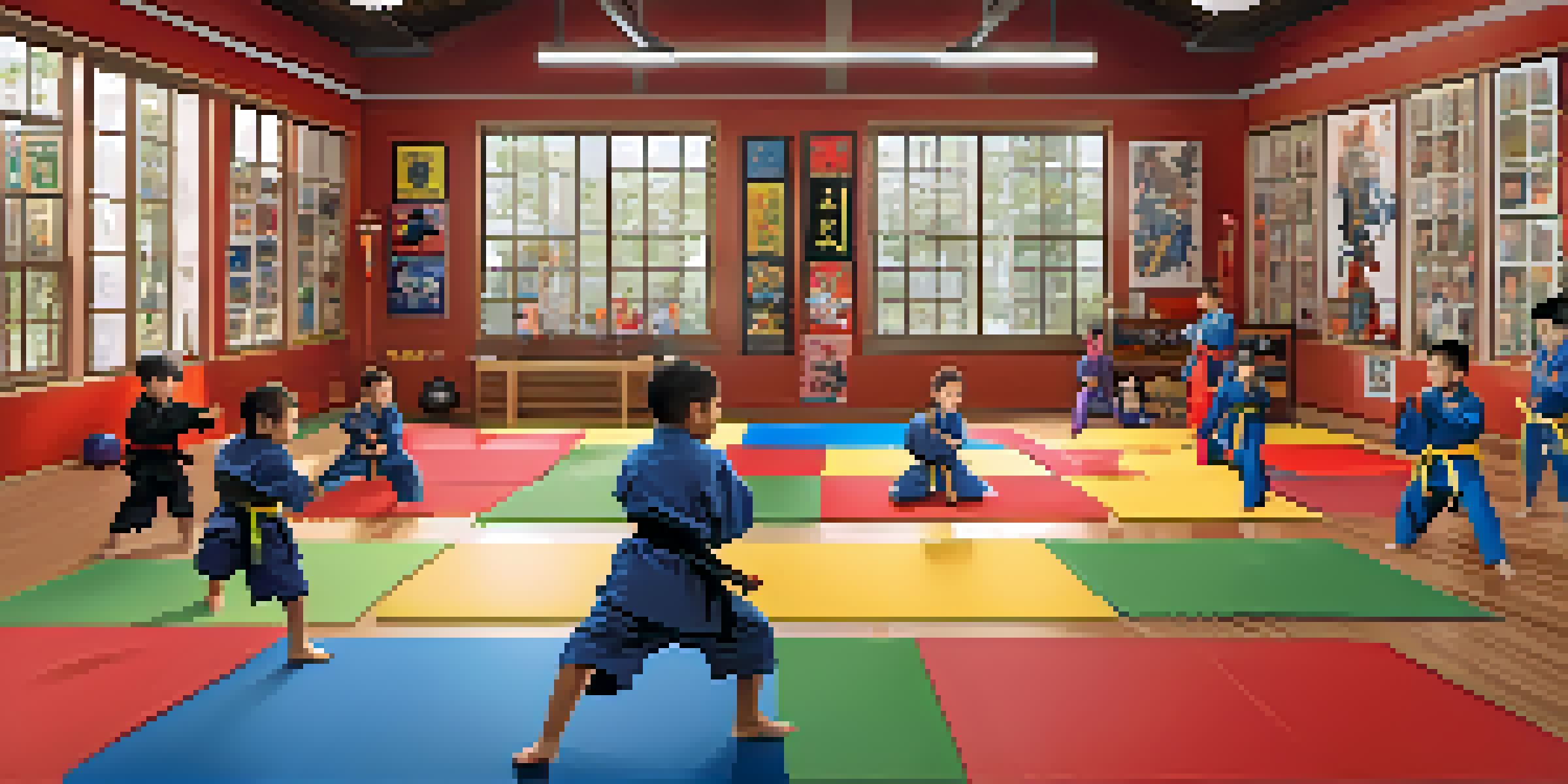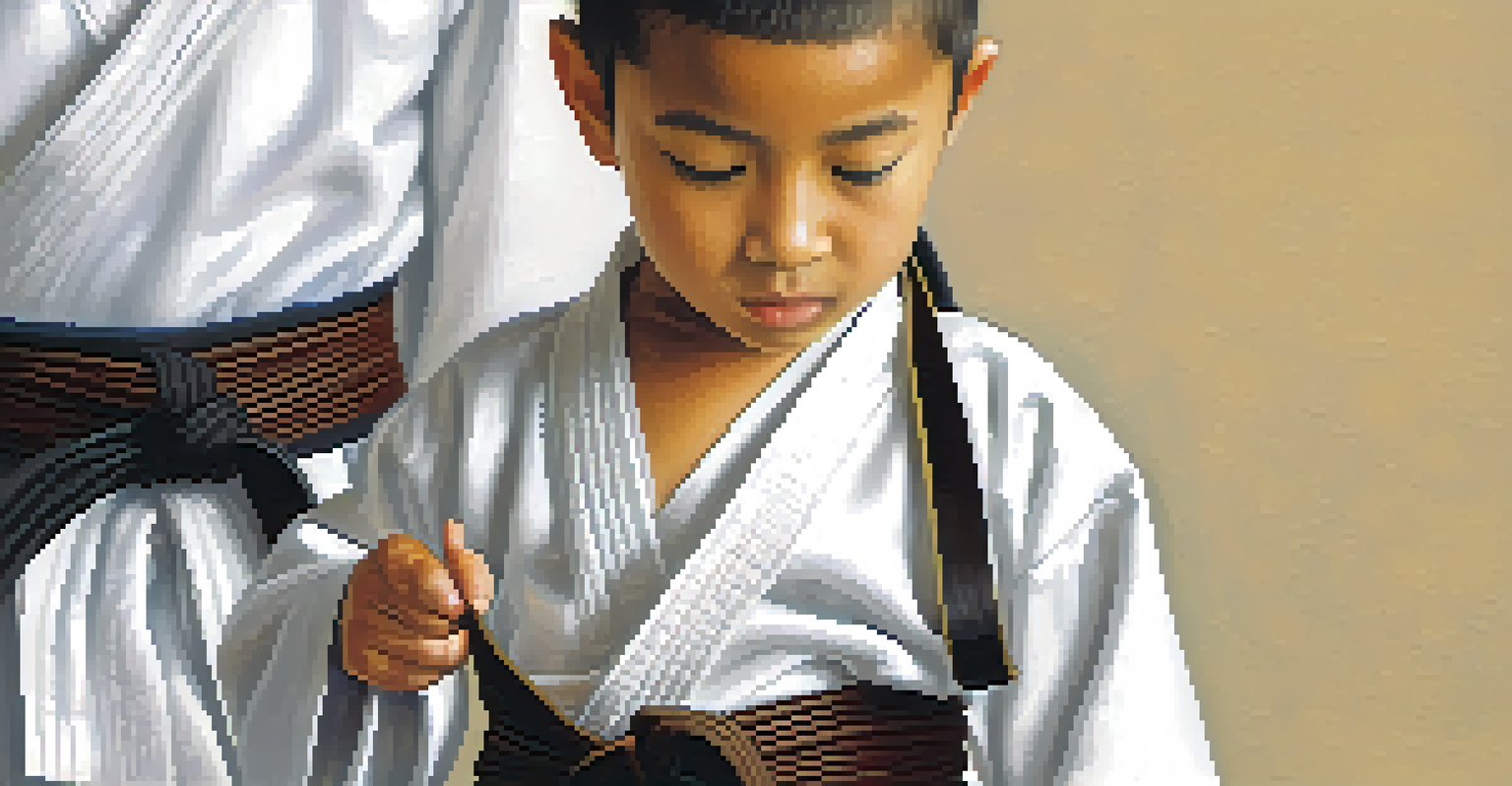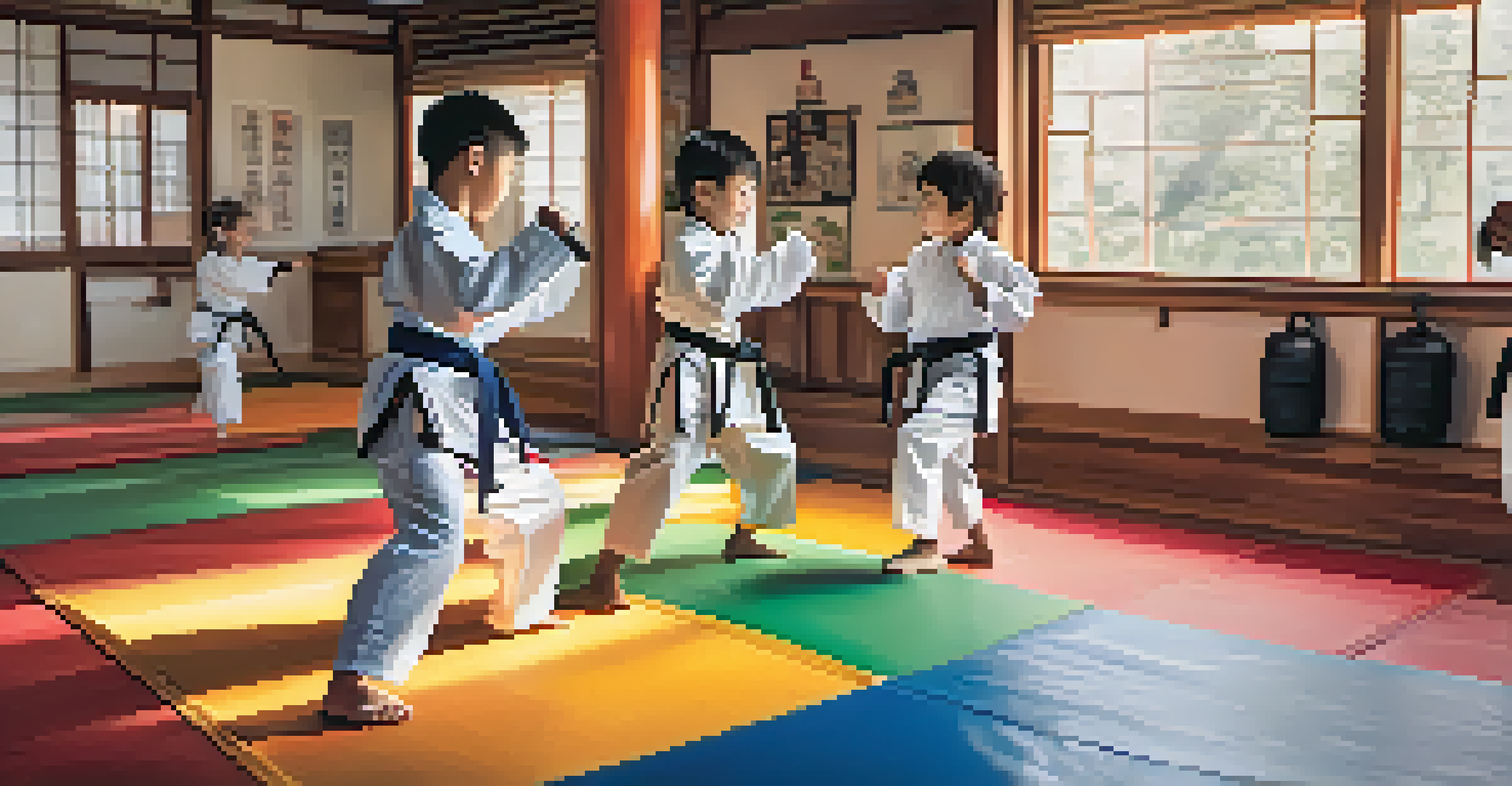Physical Fitness: Why Martial Arts Improve Kids’ Health

Martial Arts: A Fun Way to Stay Active
Kids today often spend more time in front of screens than outside. Martial arts offer a dynamic way to keep them physically active while having fun. Classes are designed to engage children through exciting drills and techniques, making exercise feel less like a chore and more like an adventure.
The more you sweat in training, the less you bleed in battle.
The variety of movements in martial arts—kicking, punching, and jumping—helps develop strength, flexibility, and coordination. As children practice these skills, they naturally improve their overall fitness levels. It's a great way for them to burn off energy, which can be especially beneficial for those who may struggle with traditional sports.
Moreover, the social aspect of martial arts classes encourages teamwork and camaraderie. Kids learn to work together, cheer each other on, and celebrate accomplishments, fostering a sense of belonging that can motivate them to stay active.
Building Confidence Through Skill Mastery
One of the most rewarding aspects of martial arts is the sense of achievement that comes from mastering new skills. Each belt promotion represents hard work and dedication, providing children with tangible goals to strive for. This process not only boosts their self-esteem but also instills a growth mindset.

As kids learn to overcome challenges, whether it's a difficult move or a sparring match, they build resilience and confidence. This newfound self-assurance can translate into other areas of their lives, such as school and social interactions. They learn that persistence pays off, which is a valuable life lesson.
Martial Arts Boosts Physical Activity
Engaging in martial arts helps kids stay active while having fun, improving their overall fitness through dynamic movements.
Additionally, the supportive environment found in martial arts dojos encourages kids to take risks and step out of their comfort zones. With the guidance of instructors and peers, they can explore their potential while feeling safe and supported.
Enhancing Focus and Discipline
Martial arts require a high level of concentration and discipline, skills that are vital for children’s development. During training, kids learn to focus on their movements and listen to instructions, which can improve their attention spans. This disciplined approach can carry over into their academic lives, helping them perform better in school.
Success is no accident. It is hard work, perseverance, learning, studying, sacrifice, and most of all, love of what you are doing or learning to do.
Practicing techniques repeatedly teaches patience and the importance of consistency. Children discover that mastery takes time and effort, which fosters a strong work ethic. This lesson in discipline is invaluable, as it shapes how they approach challenges both in and out of the dojo.
Moreover, the structured environment of martial arts classes helps children establish routines. Regular practice sessions encourage time management and responsibility, paving the way for better organization skills as they grow older.
Promoting Social Skills and Friendships
Joining a martial arts class introduces kids to a community of peers who share similar interests. This social interaction can help reduce feelings of isolation and encourage friendships. As children train together, they learn to support one another, building a sense of camaraderie that can last a lifetime.
Working in pairs or groups during drills fosters communication skills and teaches kids how to collaborate effectively. They learn to give and receive constructive feedback, which enhances their ability to navigate social situations. These interactions are essential for developing empathy and understanding different perspectives.
Builds Confidence and Resilience
Mastering new skills in martial arts promotes self-esteem and resilience, equipping children with valuable life lessons.
Furthermore, martial arts often emphasize respect and discipline, teaching kids how to interact positively with others. This foundation of mutual respect can help them create and maintain healthy relationships both in and out of the dojo.
Stress Relief and Emotional Regulation
Physical activity is a well-known stress reliever, and martial arts are no exception. The combination of exercise and focus on technique helps kids channel their energy positively, reducing anxiety and stress. As they practice, they learn to manage their emotions, which is crucial during challenging times.
The routines and rituals associated with martial arts classes, such as bowing and breathing exercises, promote mindfulness. These practices encourage kids to stay present, helping them develop better emotional regulation skills. They learn to pause, assess their feelings, and respond appropriately.
Additionally, martial arts provide a healthy outlet for frustrations. Instead of acting out in negative ways, children can release pent-up energy through controlled movements, turning potentially harmful emotions into a productive experience.
Encouraging Healthy Lifestyle Choices
Martial arts training often extends beyond the dojo, encouraging kids to adopt healthier lifestyle choices. Instructors frequently emphasize the importance of nutrition, sleep, and hydration, helping children understand how these factors contribute to their performance. This holistic approach instills a sense of responsibility for their health.
As kids become more aware of their bodies and how they function, they are more likely to make informed decisions regarding their diets and activities. This awareness can lead to healthier habits that can last a lifetime, such as choosing nutritious foods over sugary snacks.
Fosters Social Skills and Friendships
Martial arts classes encourage social interaction, helping children develop communication skills and lasting friendships.
Moreover, participating in martial arts can inspire kids to stay active outside of class. They may become interested in other physical activities like hiking, swimming, or playing sports, further promoting a well-rounded and active lifestyle.
Setting a Foundation for Lifelong Fitness
Introducing kids to martial arts at a young age sets the stage for a lifetime of fitness. The skills and values they learn can help them stay active and engaged in physical activities as they grow older. This early exposure fosters a love for movement that can last well into adulthood.
As children progress through their martial arts journey, they develop a strong sense of discipline, confidence, and resilience. These traits not only serve them in their martial arts practice but also in any physical pursuits they choose to explore later in life.

Ultimately, martial arts create a unique blend of physical fitness and personal development. By instilling these essential life skills early on, children are more likely to prioritize their health and well-being, leading to a happier and healthier future.